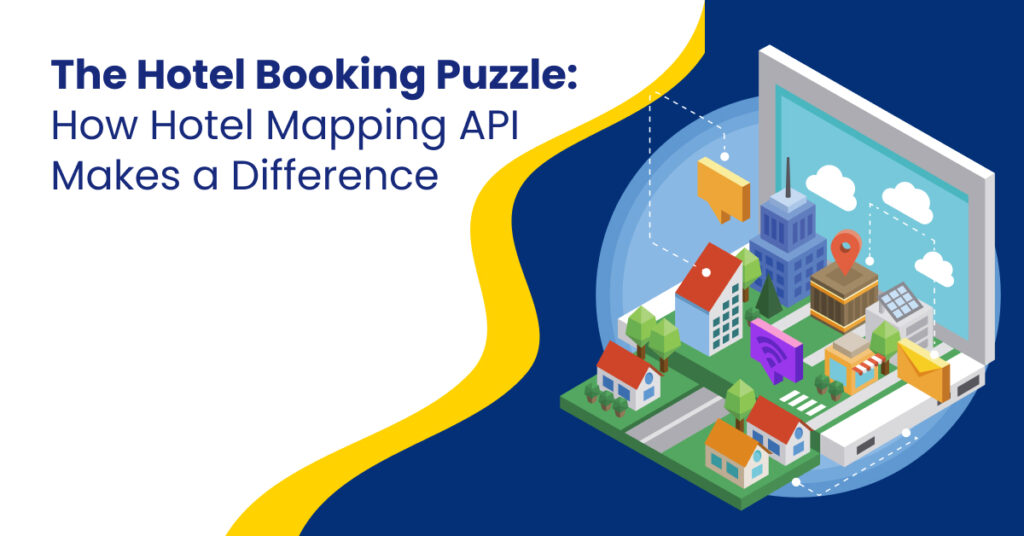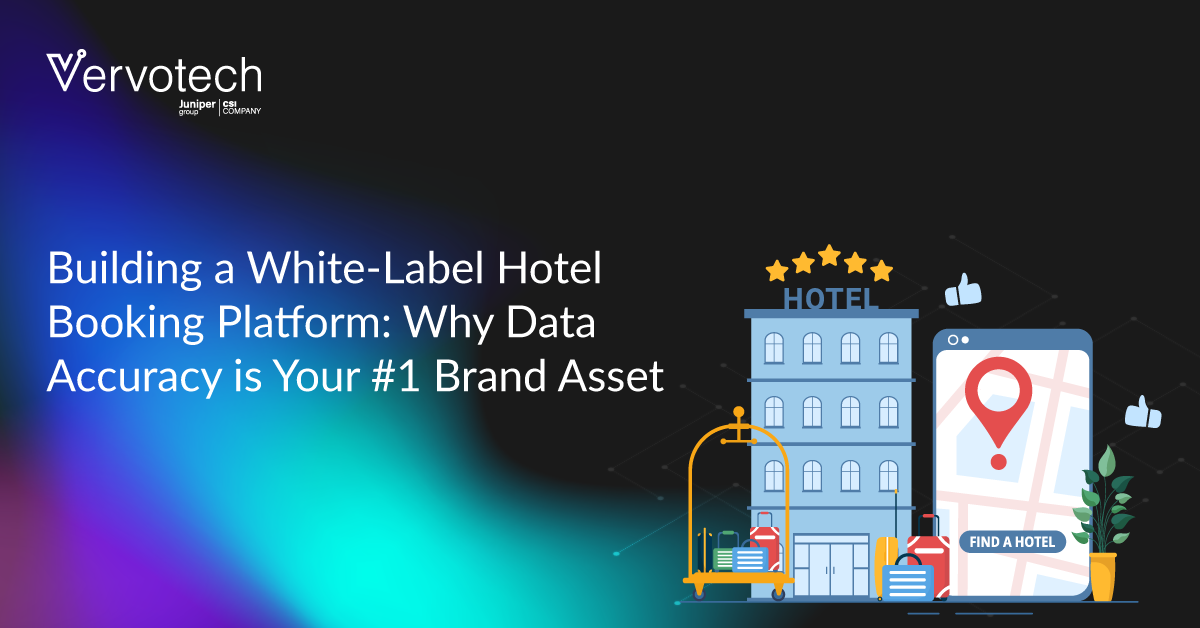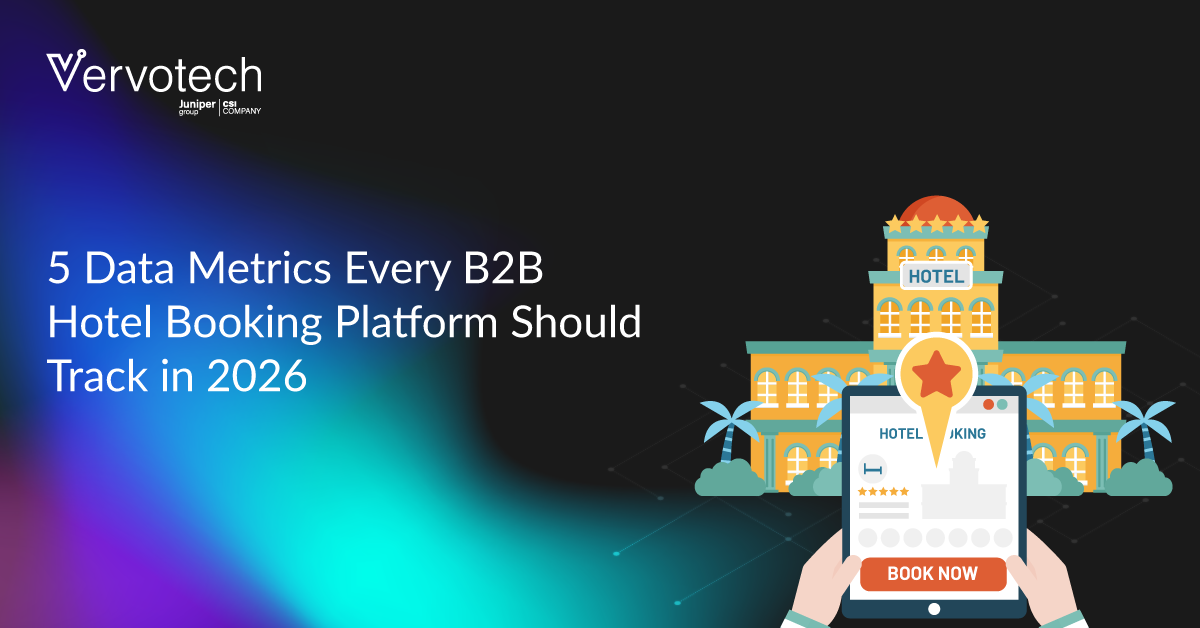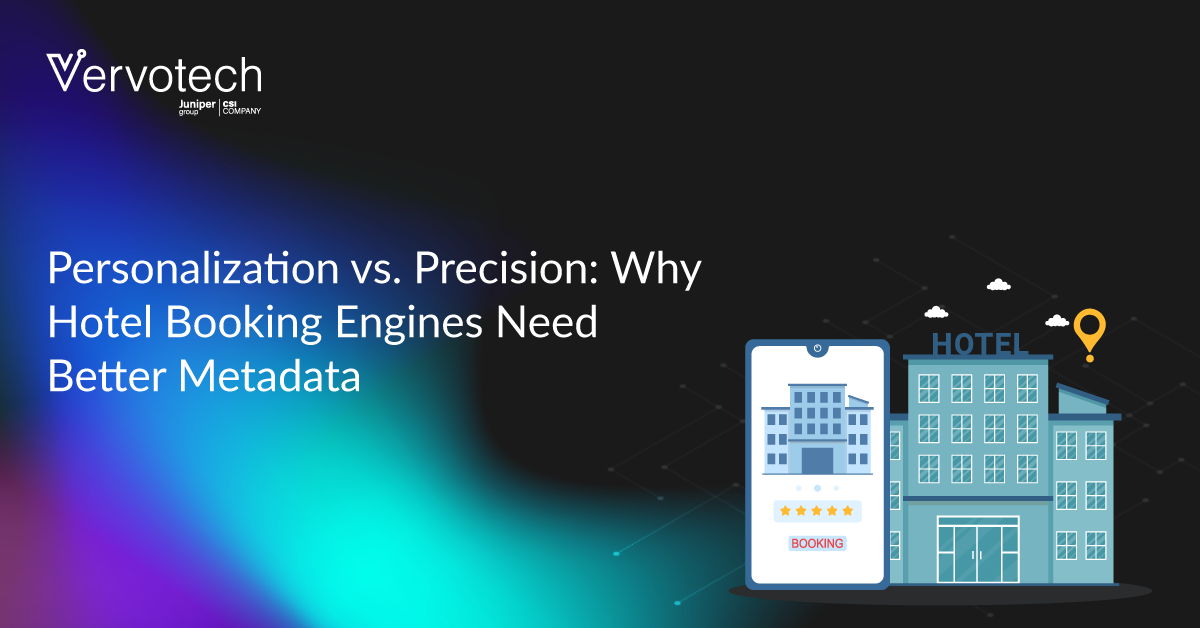Imagine this: A traveler booked a hotel in Cairo from an online hotel booking platform at a discounted rate. Upon reaching the hotel destination, he is informed that the hotel he booked is actually in Tanta. The traveler then spends hours trying to get his refund for the wrong hotel booking. Imagine the hassle he had to go through due to inaccurate hotel information.
Do you think the traveler would book again from the same hotel booking website?
This isn’t an uncommon story for travel booking platforms. Along with dissatisfied customers and bad reviews, such scenarios also impact a travel business’s profits. Inaccurate hotel addresses, duplicate hotel listings, and wrong room types are some of the persistent challenges that travel agencies face time and again.
To help online travel businesses avoid these costly challenges, hotel mapping steps in as a crucial solution. But what exactly is hotel mapping, and how does it work? Let’s take a closer look.
TL, DR
- Inaccurate hotel data, like duplicate listings or wrong locations, can lead to customer dissatisfaction, refund issues, and lost revenue.
- Hotel mapping is the process of matching and standardizing hotel data (IDs, names, and locations) across multiple booking platforms.
- It ensures that the same hotel isn’t listed differently across suppliers, reducing confusion and booking errors.
- Key attributes in hotel mapping include hotel ID, address, location coordinates, document ID, and type.
- Hotel Mapping APIs automate data standardization from multiple sources, ensuring accurate, consistent listings.
- Accurate mapping enhances customer experience, builds trust, and minimizes costly mismatches.
What is Hotel Mapping?
Hotel mapping is the process of matching hotel information (like IDs, names, and locations) across multiple booking platforms so that travel agencies, online travel businesses, and other platforms can display accurate data to travelers.
Without hotel mapping, things can get messy- one hotel could be listed under different names or IDs depending on the booking platform, which leads to confusion and, more importantly, booking errors.
Also Read – What Is a Hotel Booking API and How Can You Use It to Improve Customer Experience?
Why does this happen?
Well, different suppliers tend to assign their own unique IDs and naming conventions for the same hotel. For example, let’s say a customer wants to book a hotel in New York.
Booking platform A lists it as “The Empire Hotel,” while platform B has it as “Empire Hotel, Central Park.” It’s the same hotel, but different data sources treat it like two separate entities.
Hotel mapping ensures the system recognizes them as the same place. It also allows hotel booking platforms to synchronize and standardize data across multiple suppliers to reduce booking errors and ensure that customers see consistent, accurate information.
The key attributes involved in hotel mapping are here:
- Hotel ID: A unique identifier for the hotel in each supplier’s system.
- Address: The actual location of the hotel, including street, city, and country.
- Location: Geographical coordinates (latitude and longitude), which help pinpoint the exact location.
- Document ID: A reference ID that ties the hotel data to specific documentation in the system.
- Scope: Defines the geographical reach or scope of the hotel data (e.g., global).
- Type: The category of the entity being referenced (e.g., “HOTEL” or “ATTRACTION”)
Now, let’s see in what ways hotel mapping ensures precise bookings.
The Role of Hotel Mapping APIs in Ensuring Booking Accuracy
Hotel mapping ensures that the same hotel is consistently displayed across different platforms, which prevents mismatches and booking errors.
Improved Data Standardization
By standardizing hotel data from multiple sources, hotel mapping ensures that the same property appears correctly across platforms to mitigate confusion and errors in search results. For instance, it prevents discrepancies like one hotel being listed under two different names.
Enhanced Customer Experience
Accurate hotel mapping reduces booking errors by preventing false positives (where different hotels are mistakenly treated as the same) and false negatives (where the same hotel is listed under multiple entries). This consistency in data ensures customers can trust the information they see, which leads to a smoother booking process and greater overall satisfaction.
Impact on Revenue
Poor mapping leads to unrealized revenue when listings aren’t properly aligned or to financial losses when mismatches occur. Correct mapping helps avoid these issues to protect both customer trust and the business’s bottom line.
Also Read: 5 Signs Your Online Travel Business Needs Accommodation Mapping
How Vervotech’s Hotel Mapping Solution Works
Vervotech’s Hotel Mapping APIs connect a booking platform to a hotel’s database, allowing for an accurate representation of the hotel’s offerings, such as room types, pricing, and services.
They automate the process of collecting, standardizing, and categorizing hotel data from various suppliers, ensuring a seamless integration of hotel content across platforms. Hotel Mapping APIs leverage AI to process key attributes like amenities, ratings, and policies, grouping similar hotels for easy access.
In a nutshell, the Hotel Mapping API:
- Links hotel data (like rooms and amenities) with external platforms.
- Syncs information such as price, descriptions, and features.
- Provides data on hotel locations, policies, and amenities.
- Standardizes room categories for easy comparison.
This way, Vervotech’s Hotel Mapping APIs help avoid mismatches between what the customer sees and what’s available by ensuring that your platform has accurate and consistent hotel data.
Get Standardized Hotel Content Uniquely Mapped From 400+ Suppliers
FAQs
1. What is hotel mapping in the context of travel technology?
Hotel mapping is the process of consolidating and standardizing hotel information from multiple suppliers to ensure consistent listings across platforms. It prevents issues like duplicate hotels, incorrect addresses, and inconsistent naming.
2. Why is hotel mapping important for online travel agencies (OTAs)?
Without proper mapping, one hotel can appear multiple times under different names or IDs, causing confusion and booking errors. Hotel mapping ensures clean, accurate data, improving user experience and maintaining platform credibility.
3. What problems does poor hotel mapping cause?
Poor mapping can lead to duplicate listings, mismatched hotels, wrong room details, and even lost bookings or revenue. It also damages user trust when customers face incorrect or inconsistent information.
4. How do Hotel Mapping APIs improve booking accuracy?
Hotel Mapping APIs automatically identify and merge duplicate listings, sync property details like location, pricing, and amenities, and standardize data across all suppliers, ensuring customers see reliable, unified hotel content.
5. How does Vervotech’s Hotel Mapping API stand out?
Vervotech’s API uses AI-native mapping technology to collect and standardize hotel data from 400+ suppliers. It eliminates duplicates, ensures accuracy across channels, and supports multi-language and multi-currency environments.
6. Can hotel mapping impact business revenue?
Absolutely. Poor mapping can cause booking errors and refund requests that reduce revenue. Proper mapping ensures better inventory accuracy, which leads to more successful bookings and fewer cancellations.
7. How can travel businesses get started with Vervotech’s Hotel Mapping Solution?
Vervotech offers a free trial for businesses to experience how its Hotel Mapping API standardizes content and improves data accuracy across their platforms.







